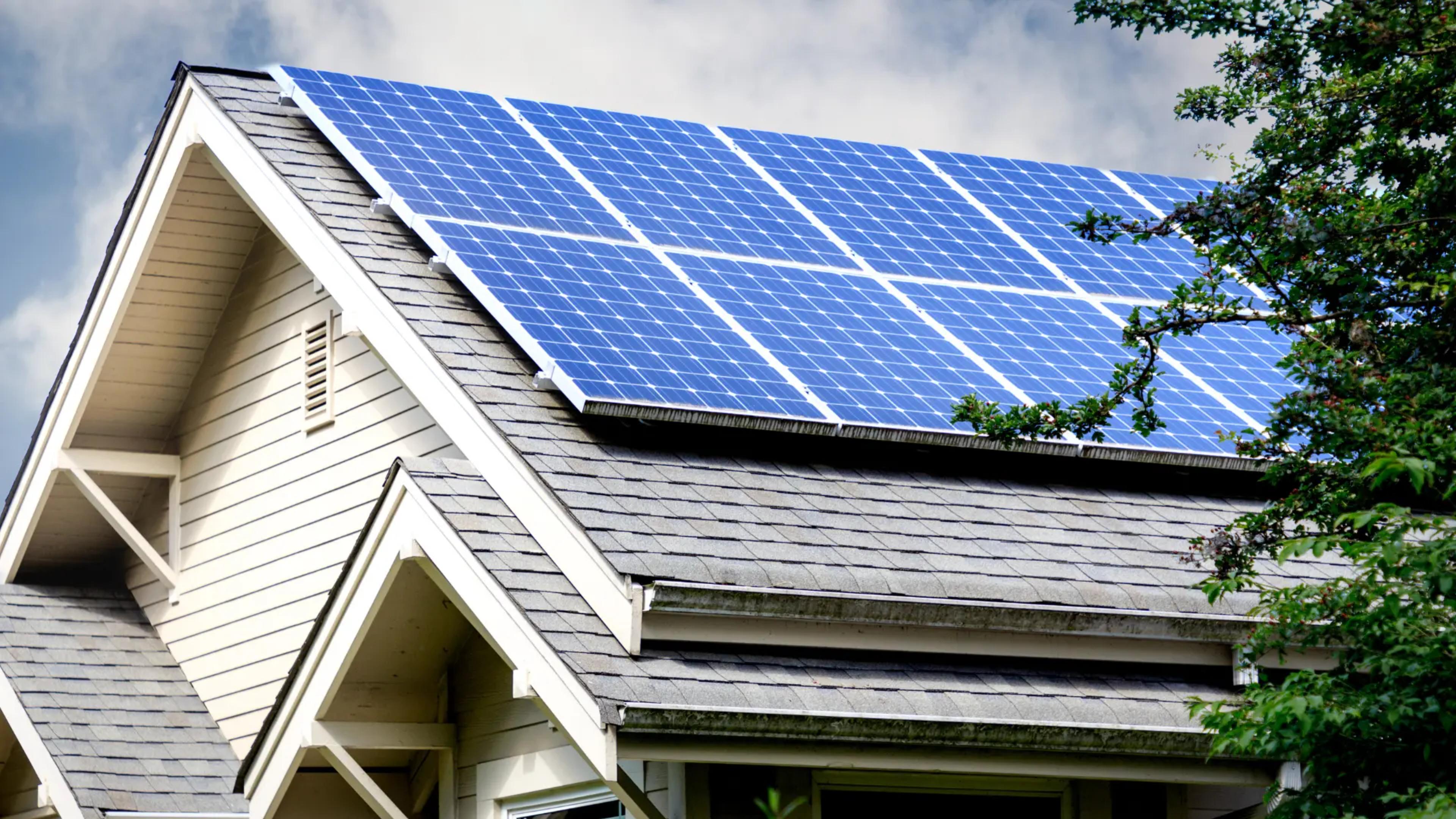Simply Solar Illinois – Reliable Solar Panels for Any Energy Needs
Simply Solar Illinois – Reliable Solar Panels for Any Energy Needs
Blog Article
How Solar Power Can Aid You Save Money and Decrease Your Carbon Impact
The assimilation of solar power right into your energy portfolio presents a compelling possibility for both financial cost savings and environmental stewardship. As various federal government motivations come to be offered, the question occurs: how can one effectively navigate the initial financial investments and ongoing benefits of solar innovation to maximize both financial and ecological gains?
Understanding Solar Energy Financial Savings
While the change to solar power typically entails a preliminary financial investment, understanding solar power cost savings is essential for property owners and services alike. Solar energy systems can considerably lower power expenses by utilizing the sunlight's power, equating into considerable long-lasting monetary advantages.
Furthermore, solar power systems may receive different economic motivations, consisting of tax credit ratings and rebates, additionally boosting their cost-effectiveness. The accessibility of net metering allows customers to offer excess energy back to the grid, developing an added profits stream. These elements contribute to the total financial savings related to solar energy.

In enhancement to route financial cost savings, solar power supplies the included advantage of raising residential or commercial property worth. Homes geared up with solar panels are typically more eye-catching to buyers, as they promise lower energy costs - Simply Solar Illinois. Understanding these elements is essential for anybody taking into consideration solar energy, as it highlights not simply the potential economic gains, however also the more comprehensive environmental and financial benefits of taking on renewable resource services
Initial Prices vs. Long-Term Benefits
When evaluating solar power, it is very important to weigh the first costs against the lasting advantages. The in advance investment for photovoltaic panels, setup, and relevant tools can be considerable, often varying from $15,000 to $30,000, relying on the system dimension and home power requirements. This initial expense may discourage some home owners; nonetheless, it is vital to think about the potential financial savings gradually.
Once set up, solar power systems can considerably reduce or also eliminate month-to-month electrical energy expenses, leading to significant long-term economic advantages. Research studies show that house owners can save anywhere from $10,000 to $30,000 over the life expectancy of their planetary system, typically 25 years. In addition, many states use incentives, tax credits, and discounts that can balance out first costs, making solar a lot more easily accessible.

Lowering Your Carbon Impact
Reducing your carbon impact is a crucial factor to consider in today's environmentally mindful society, and embracing solar power is just one of the most efficient strategies to attain this goal. Solar power is a clean, eco-friendly resource that substantially reduces reliance on nonrenewable fuel sources, which are significant contributors to greenhouse gas discharges.

In addition, the widespread fostering of solar innovation urges the advancement of environment-friendly work and supports innovations in energy storage space and effectiveness. The even more individuals and companies buy solar energy, the higher the cumulative reduction in carbon discharges, promoting a cleaner atmosphere for future generations.
Federal Government Incentives and Refunds
Adopting solar power not just benefits the environment my latest blog post however can additionally result in substantial financial savings, specifically with the accessibility of federal government incentives and refunds. Numerous federal, state, and regional programs are made to motivate homeowners and services to spend in solar energy systems, making the shift more budget-friendly.
One of one of the most prominent incentives is the Federal Investment Tax Obligation Debt (ITC), which allows solar system owners to subtract a significant percent of the installation prices from their federal taxes. This motivation has actually been crucial in decreasing the in advance costs related to solar power systems. Additionally, lots of states provide their very own tax debts, grants, and refunds that can better boost financial savings.
Furthermore, some local federal governments give home tax exemptions for solar installations, ensuring that homeowners do not face enhanced real estate tax as a result of their renewable resource financial investments. Energy firms might likewise provide incentives, consisting of web metering and feed-in tariffs, which allow solar power users to market excess power back to the grid.
Selecting the Right Solar System
Picking the ideal solar system is vital for maximizing power effectiveness and financial advantages. The decision pivots on numerous aspects, including power requirements, budget, and readily available space. Homeowners ought to begin by evaluating their power usage to determine the system dimension required for optimum performance.
Following, take into consideration the different kinds of solar modern technologies readily available. Simply Solar Illinois. Photovoltaic (PV) panels are one of the most typical, transforming sunshine directly right into electrical power, while solar thermal systems concentrate on home heating water. Each type has distinct benefits depending upon specific requirements
Spending plan considerations are likewise paramount. Preliminary installation expenses can differ considerably, so it is very important to compare quotes from several companies and explore funding choices. Federal government motivations and rebates can further decrease the economic concern, making solar systems much more accessible.
Final Thought
The environmental advantages of solar energy add to lasting methods important for you could look here combating environment modification. Federal government rewards enhance the feasibility of solar innovation fostering, urging a change towards a cleaner, a lot more financially efficient energy resource.
Report this page